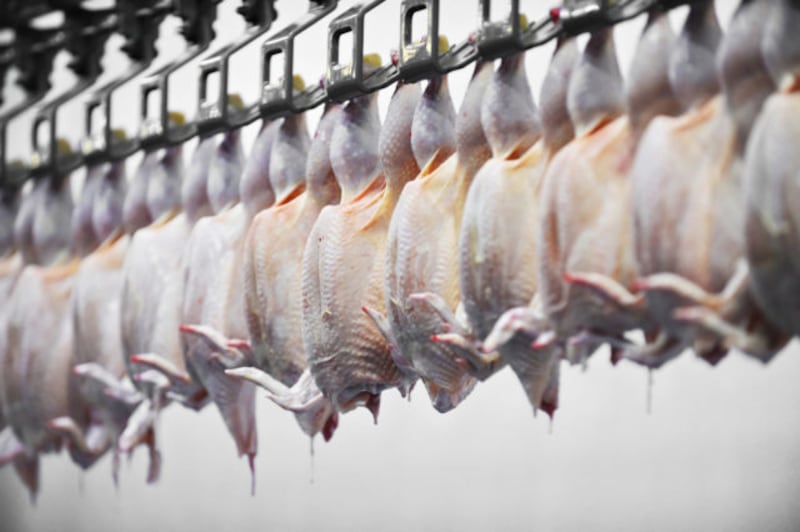Sustained growth in intensive pig, poultry and dairy production - driven in part by government strategy - has led to unsustainable demands on the environment, a major new report concludes.
Urgent action is needed to protect and improve the environment for this and future generations, the UK’s Office for Environmental Protection (OEP) said.
The report said the agri-food industry in its current form is making unsustainable demands on the environment, with the controversial Going for Growth strategy first developed just over a decade ago identified as a key driver of its growth.
The north “ranks as the 12th worst (country) in the world for biodiversity loss”, with one in 12 species facing extinction and several others experiencing significant rates of decline, the report on the drivers and pressures affecting nature notes.

Two principal pressures causing biodiversity loss are land use change and pollution, closely linked to agricultural intensification, the OEP said.
Excess nutrients, fertilisers and animal wastes from farming and from sewage, are the main forms of pollution having an impact, it added.
Other drivers include waste management, resource extraction, urban development and chemical pollution.
Dame Glenys Stacey, OEP chair, said nature sustains the “economy and the health, wealth and wellbeing of its people”.

“Protecting the natural environment is therefore fundamental to achieving economic and social goals,” Dame Glenys said.
“More and more has been demanded of the environment over many years, and it is now clear that more pressure has been applied than the land and water can bear.
“Government must act urgently and decisively, not only to reverse a lifetime of environmental degradation and to restore the diversity of Northern Ireland’s habitats and species, but also to ensure a sustainable agri-food industry and wider economy.
“Failure to do so risks a heavy toll on the prosperity and well-being of future generations.”
The Going for Growth strategy, which set a target to increase agricultural turnover by 60% between 2013 and 2020, has led to the “growth and intensification” of pig, poultry and dairy production.
The main types of agricultural development linked to deteriorating water quality include a significant increase in the size of enterprises rearing sows, increases in dairy cattle and a doubling of the number of poultry reared in the north since 1990.

These, along with increased consumption of mostly imported livestock feed, have “come at great cost to the natural environment”.
The report states that each year 6,000 tonnes of excess phosphorus are added to agricultural soils. An estimated 40% of soils have phosphorus concentrations above what is required for crop growth.
It recommends reducing pollution by nutrients from farming and sewage, changing land use to restore habitats and decrease material and ecological footprints
Agriculture, Environment and Rural Affairs Minister Andrew Muir said: “It is clear that we must change practices which contribute to the loss of our valuable habitats.” He called the recommendations “unsurprising”.

“We as government must continue to provide both the right policies and financial support to place us on the correct path to reverse environmental degradation,” the minister said.
“In recent months, I have made significant progress by receiving approval for the Lough Neagh Report and Action Plan, as well as the Environmental Improvement Plan, serving as Northern Ireland’s first Environment Strategy.”
Malcolm Beatty, the OEP’s non-executive board member in the north, said: “We hope this assessment provides government with the comprehensive and timely assessment it needs to plan for the future.
“It is such a crucial time, with Northern Ireland’s first Environmental Improvement Plan now in place and other important steps due to follow soon, including the much-needed Nutrients Action Programme, River Basin Management Plans, Nature Recovery Strategy, and Farming with Nature scheme.
“There is an opportunity now for Government to lead in renewing the relationship with the natural environment here. It is an opportunity too important to squander.”
Robbie McDonald, the OEP’s chief scientific officer, said it had examined pressures on the environment in the north over generations.
“The very, very visible sign of deterioration has been in Lough Neagh,” he said. “But beneath the surface and across all of the waterways and land of Northern Ireland, this process has been going on for decades.”








